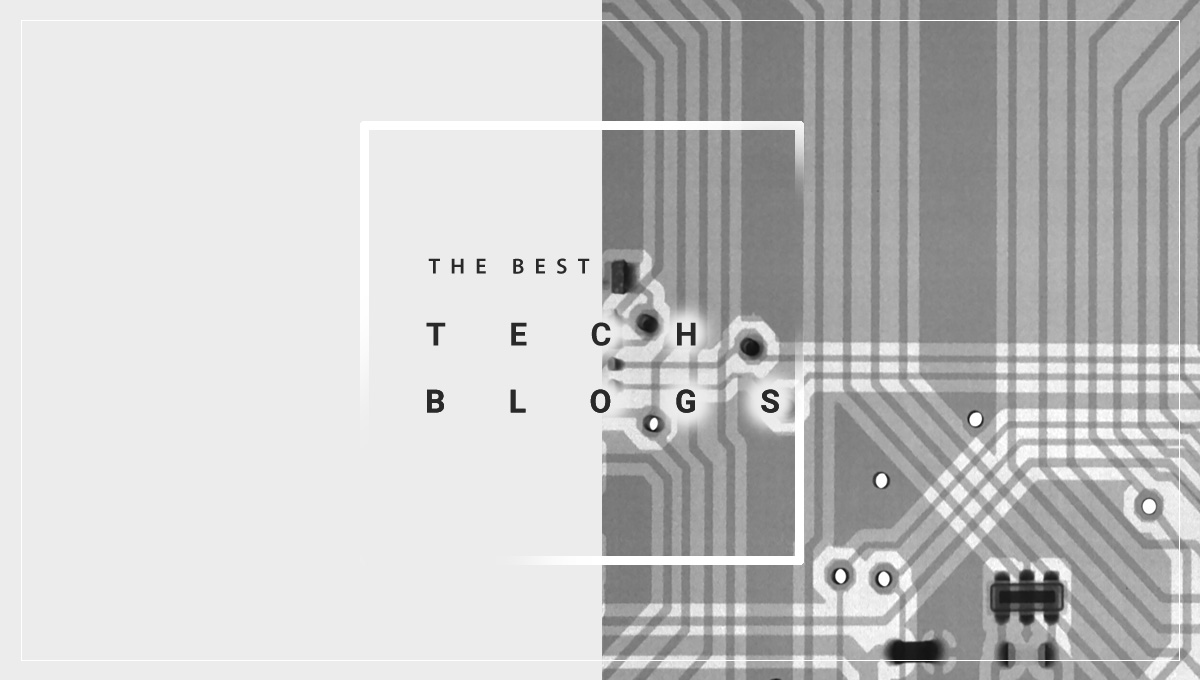Discover Thought-Provoking Articles on the Best tech blog for Tech Lovers
Discover Thought-Provoking Articles on the Best tech blog for Tech Lovers
Blog Article
Just How Blockchain Modern Technology Is Revolutionizing Data Protection
Blockchain modern technology is essentially changing the landscape of information safety and security by introducing a decentralized framework that assures boosted transparency and resilience. Unlike conventional systems, which count on central data repositories, blockchain disperses information throughout a network, decreasing susceptabilities and solitary factors of failing. The usage of advanced cryptographic techniques ensures that data stays tamper-proof, fostering depend on amongst customers and stakeholders.
The Basics of Blockchain
Blockchain technology, an advanced principle in electronic information monitoring, basically changes how info is stored and secured. At its core, a blockchain is a distributed ledger that records deals throughout a network of computers, guaranteeing openness and immutability. The innovation operates a chain of blocks, each consisting of a list of transactions. Once a block is loaded, it is time-stamped and linked to the previous block, developing a sequential chain.
Trick to understanding blockchain is the hashing procedure, which secures purchase data into an unique alphanumeric code. This cryptographic function ensures that any type of modification in the transaction data leads to a completely various hash, therefore securing against meddling. The agreement mechanism, another essential part, validates and confirms brand-new transactions through a network of nodes, therefore removing the need for a centralized authority.
Furthermore, blockchain's append-only framework makes certain that data, once included, can not be erased or altered. This particular assurances a proven and long-term document of deals, fostering trust amongst participants. As a result, blockchain gives a durable framework for information integrity, providing markets a trustworthy approach for tracking and managing electronic information in a safe, transparent fashion.
Decentralization and Security
Decentralization, a core principle of blockchain technology, significantly enhances data security by dispersing control across a network as opposed to counting on a particular, centralized entity. This circulation alleviates the threat of single factors of failing, which prevail in typical central systems. By dispersing data across numerous nodes, blockchain ensures that also if one node is compromised, the entire network stays protected. This redundancy not only fortifies the honesty of the information but also increases its durability to cyberattacks and system failings.

Each individual in the network has access to the whole blockchain, allowing them to validate and audit deals individually. On the whole, decentralization is crucial in enhancing information safety and security in blockchain networks.

Cryptographic Methods
At the heart of blockchain innovation, cryptographic methods play a critical role in guarding data, guaranteeing both discretion and honesty. Cryptography in blockchain uses a combination of symmetric and uneven formulas to encrypt data, making it available just to licensed celebrations.
Hash functions are one more important part, changing input data right into a fixed-size string of characters, efficiently creating a distinct digital finger print for every block. This guarantees that any attempt to change the data will lead to a totally different hash, therefore keeping the immutability of the blockchain. Electronic signatures validate the credibility and stability of transactions, offering a layer of non-repudiation.
The decentralized nature of blockchain, integrated with robust cryptographic methods, gets rid of the need for intermediaries, reducing potential susceptabilities. As blockchain innovation evolves, developments in cryptography such as zero-knowledge evidence and homomorphic file encryption proceed to improve safety actions, additionally fortifying data defense in this innovative electronic journal system.
Use Instances Across Industries

In the health care industry, blockchain makes sure the secure storage space and sharing of individual records, advertising interoperability while protecting sensitive information from unauthorized accessibility. This modern technology empowers clients with control over their case history and assists in seamless control among health care carriers.
Supply chain management advantages considerably from blockchain's immutable journal, which ensures traceability and authenticity of products from beginning to customer. By boosting openness, blockchain helps alleviate issues such as counterfeiting and underhanded sourcing.
In addition, blockchain's decentralized nature is reshaping the energy sector by enabling peer-to-peer power trading, where consumers can deal excess renewable resource straight. This fosters a more efficient and lasting power ecological community.
In the world of copyright, blockchain provides a tamper-proof system for creators to register and protect their works, making sure rightful attribution and reasonable compensation. These varied usage situations underline blockchain's role as an essential pressure in redefining information safety and security across markets.
Future of Data Security
As we aim to the future of data security, blockchain innovation is poised to play a crucial function in protecting digital details. With its decentralized and immutable characteristics, blockchain supplies a robust structure for safeguarding sensitive information versus unauthorized accessibility and cyber threats. This innovation ensures that when information is videotaped, it is virtually difficult to alter without detection, thus giving a significant benefit over traditional data storage techniques.
The assimilation of blockchain with other advanced innovations, such as expert system and the Internet of Things (IoT), is anticipated to boost data defense approaches better. By leveraging wise agreements, organizations can impose and automate safety protocols, reducing human mistake and boosting effectiveness. In addition, blockchain's capacity to provide transparent and deducible purchases will reinforce count on and liability in data management methods.
As governing landscapes develop, blockchain's compliance-friendly nature will come to be significantly relevant. It can assist companies fulfill rigid data defense guidelines, such as the General Data Protection Regulation (GDPR) and the California Consumer Privacy Act (CCPA), by giving proven records of data handling activities. Eventually, blockchain's one-of-a-kind attributes position it as a transformative tool in the continuous pursuit to safeguard the electronic world against ever-evolving cyber hazards.
Conclusion
Blockchain technology stands for a paradigm change in information safety by leveraging decentralization and cryptographic techniques to enhance transparency, count on, and information stability. As cyber risks develop, blockchain arises as an important tool for robust data security throughout numerous sectors.
Blockchain modern technology is basically modifying the landscape of information safety and security by presenting a decentralized framework that assures boosted transparency and strength. Unlike conventional systems, which rely on centralized information databases, blockchain distributes data across a network, minimizing susceptabilities and solitary points of failing.Decentralization, a core concept of blockchain modern explanation technology, considerably boosts Homepage data security by distributing control across a network rather than counting on a particular, centralized entity.At the heart of blockchain innovation, cryptographic techniques play an essential role in protecting data, guaranteeing both discretion and integrity.Blockchain technology represents a standard change in information security by leveraging decentralization and cryptographic strategies to boost transparency, depend on, and data honesty.
Report this page